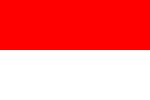Women's Resilience in Environmental Conflict in Indonesia
Resiliensi Perempuan dalam Konflik Lingkungan di Indonesia
Abstract
Environmental conflict is a problem often found in various regions in Indonesia, which occurred in Kendeng and Sangihe. If we look at the impact of environmental conflicts, this threatens the whole community regardless of the gender contained in the object of the dispute. Even so, environmental conflicts are often identified as something “masculine”. This study seeks to describe how women’s resilience in environmental conflicts that occurred in Kendeng and Sangihe. Besides that, this research also seeks to see how the various narratives of ecofeminism relate to the resilience practices carried out by women in the context of environmental conflicts. The researcher uses a qualitative research type with the unit of analysis of two Watchdoc documentaries entitled “Samin vs Semen” and “Sangihe Melawan” which will be analyzed using content analysis techniques. The results of the study show that the role of women in the movement against environmental conflict in both Kendeng and Sangihe is determined by a sense of ownership of the environment or nature which is a means of fulfilling the material needs of the local community. Another research result is that there are differences in the narratives of ecofeminism contained in the two movements, with the movement in Kendeng which is more towards spiritual ecofeminism and the movement in Sangihe which is more towards transformative ecofeminism. Although there are differences in terms of ecofeminism narratives, there are no significant differences in terms of resilience practices carried out by women in both Kendeng and Sangihe.
Downloads
References
Adger, W. N. (2000). Social and ecological resilience: Are they related? Progress in Human Geography, 24(3), 347–364. https://doi.org/10.1191/030913200701540465
Blake, D. E., Guppy, N., & Urmetzer, P. (1997). Being Green in BC: Public Attitudes Towards Environmental Issues. BC Studies 216: Winter 2022/23, 41–61. https://doi.org/10.14288/bcs.v0i112.1667
Boserup, E., Kanji, N., Tan, S. F., & Toulmin, C. (2007). Woman’s Role in Economic Development. London: Routledge.
Dietz, T., Kalof, L., & Stern, P. C. (2002). Gender, Values, and Environmentalism. Social Science Quarterly, 83(1), 353–364. http://www.jstor.org/stable/42956291
Diprose, K. (2014). esilience is futile: The cultivation of resilience is not an answer to austerity and poverty. Soundings: A journal of politics and culture 58, 44-56. https://www.muse.jhu.edu/article/565757
Herman. (2022). KPA Catat 207 Konflik Agraria Sepanjang 2021. Retrieve from beritasatu.com. https://www.beritasatu.com/ekonomi/875603/kpa-catat-207-konflik-agraria-sepanjang-2021
Holling, C. S. (1973). Resilience and Stability of Ecological System. Annual Review of Ecology and Systematics, 4, 1-23. https://doi.org/10.1146/annurev.es.04.110173.000245
Jenkins, K., & Rondón, G. (2015). ‘Eventually the mine will come’: women anti-mining activists’ everyday resilience in opposing resource extraction in the Andes. Gender and Development, 23(3), 415–431. https://doi.org/10.1080/13552074.2015.1095560
Kusnandar, V. B. (2022, February 15). Ini Kontribusi Sektor Pertanian terhadap Ekonomi RI Tahun 2021. Retrieve from Katadata.com. https://databoks.katadata.co.id/datapublish/2022/02/15/ini-kontribusi-sektor-pertanian-terhadap-ekonomi-ri-tahun-2021
Lenette, C., Brough, M., & Cox, L. (2013). Everyday resilience: Narratives of single refugee women with children. Qualitative Social Work, 12(5), 637–653. https://doi.org/10.1177/1473325012449684
Megawangi, R. (1999). Membiarkan Berbeda? Sudut Pandang Tentang Relasi Gender. Bandung: Mizan
Moleong, L. J. (2016). Metodologi Penelitian Kualitatif Edisi Revisi (Revisi). Bandung: PT Remaja Rosdakarya
Mustofa, M. U., Raudya, M. D. K., Nurdini, F. M., & Sulaeman, K. M. (2022). The Indonesian Journal of Politics and Policy Radikalisasi Grassroots Movements Dalam Politik Ekologi di Indonesia Pasca Reformasi. 4(1). https://journal.unsika.ac.id/index.php/IJPP
Polanyi, K. (2001). The Great Transformation: The Political and Economic Origins of Our Time (Paperback). Beacon Press. www.beacon.org
Saikia, U. (2021). Role Of Women In Environmental Movement In India. 20(6), 2473–2478. https://doi.org/10.17051/ilkonline.2021.06.228
Shiva, V., & Mies, M. (2005). Ekofeminisme. Yogyakarta: IRE Press.
Solo, T. L. (2012). Agenda Perempuan dalam Gerakan Petani. Muwazah, 2(1), 205-2014. https://doi.org/10.28918/muwazah.v2i1.18
Stoddart, M. C. J., & Tindall, D. B. (2011). Ecofeminism, hegemonic masculinity, and environmental movement participation in British Columbia, Canada, 1998-2007: “women always clean up the mess.” Sociological Spectrum, 31(3), 342–368. https://doi.org/10.1080/02732173.2011.557065
Susilo, R. K. D. (2008). Sosiologi Lingkungan. Jakarta: Raja Grafindo Persada.
Taylor, S. J., Bogdan, R., & DeVault, M. (2015). Introduction to Qualitative Research Methods: A Guidebook and Resource (4th ed.). New Jersey: Wiley.
Tindall, D. B., Davies, S., & MauboulÈs, Cé. (2003). Activism and conservation behavior in an environmental movement: The contradictory effects of gender. Society and Natural Resources, 16(10), 909–932. https://doi.org/10.1080/716100620
Tong, R. P. (2009). Feminist Thought: A More Comprehensive Introduction (Third Edition). Colorado: Westview Press.
Wardah, F. (2022). Perempuan Korban Paling Rentan Akibat Konflik Sumber Daya Alam. https://www.voaindonesia.com/a/perempuan-korban-paling-rentan-akibat-konflik-sumber-daya-alam/6675986.html
Warren, K. J. (1994). Ecological Feminism Perspective. London: Routledge.
Wulan, T. R. (2007). Ekofeminisme Transformatif: Alternatif Kritis Mendekonstruksi Relasi Perempuan dan Lingkungan. Sodality: Jurnal Sosiologi Pedesaan, 1(1), 105-130. https://doi.org/10.22500/sodality.v1i1.5935
Copyright (c) 2023 Mustabsyirotul Ummah Mustofa, M. Diva Kafila Raudya, Jian Ayune Sundul Langit, Pupoes Biworo

This work is licensed under a Creative Commons Attribution-NonCommercial-ShareAlike 4.0 International License.
- Authors retain copyright and grant the journal right of first publication with the work simultaneously licensed under a Creative Commons Atribusi-Non Commercial-Share Alike (CC BY-NC-SA).
- Authors are able to enter into separate, additional contractual arrangements for the non-exclusive distribution of the journal's published version of the work (e.g., post it to an institutional repository or publish it in a book), with an acknowledgement of its initial publication in this journal.
- Every publication (printed/electronic) are open access for educational purposes, research, and library. Other than the aims mentioned above, the editorial board is not responsible for copyright violation.

















